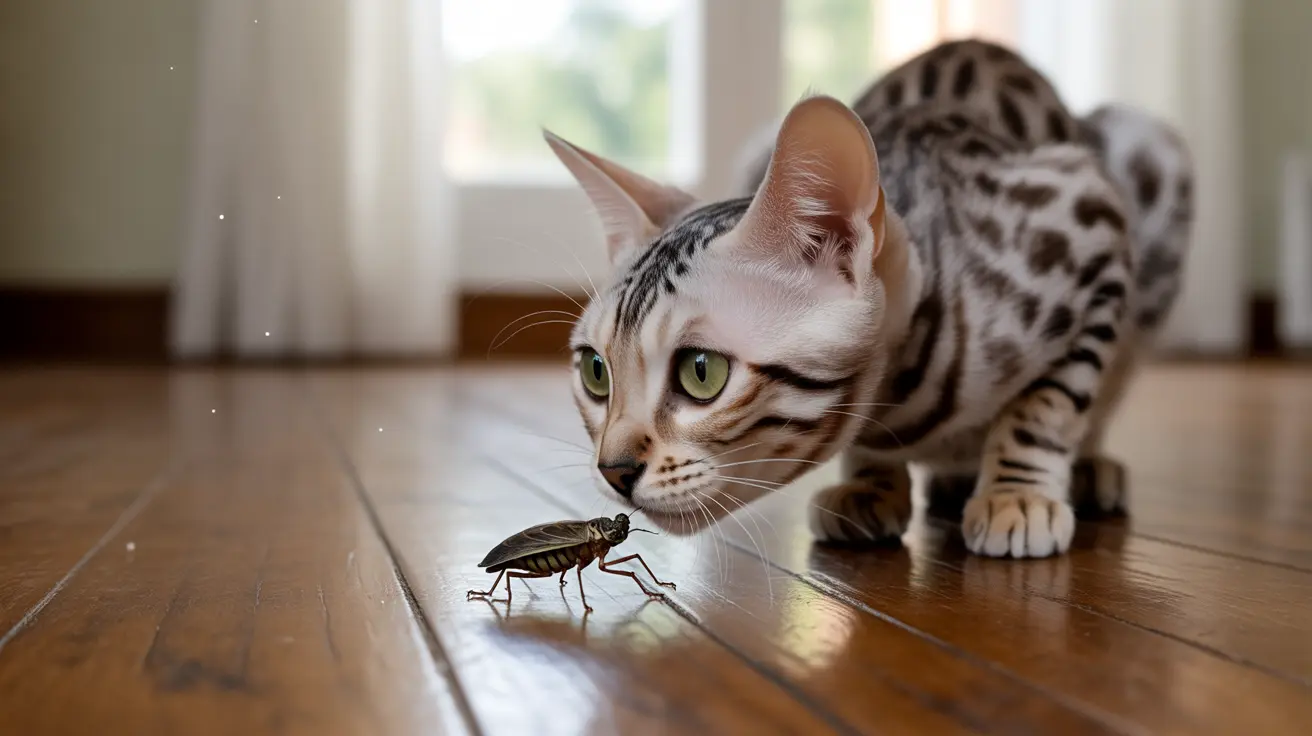If you've ever watched your cat chase a stink bug across the floor, you might wonder about the safety implications of this common household encounter. While cats are natural hunters with an instinct to pursue insects, it's important to understand the potential risks and effects of stink bug consumption on your feline friend.
In this comprehensive guide, we'll explore everything you need to know about cats and stink bugs, including potential health risks, symptoms to watch for, and when to seek veterinary care.
Understanding Stink Bugs and Their Effects on Cats
Stink bugs, while not inherently toxic to cats, can cause several uncomfortable reactions when eaten or encountered. These insects release an unpleasant defensive secretion when threatened, which can irritate your cat's mouth, digestive system, and eyes.
Most cats who encounter stink bugs quickly learn to avoid them due to their distinctively unpleasant taste and smell. However, some curious felines might still attempt to catch and eat these insects, leading to potential health issues.
Common Symptoms After Stink Bug Encounters
Digestive Issues
- Temporary loss of appetite
- Mild vomiting or diarrhea
- Excessive drooling
- Stomach discomfort
Oral and Eye Irritation
- Redness or swelling of the mouth and gums
- Excessive salivation
- Eye inflammation and tearing
- Pawing at the face or mouth
Health Risks and Complications
While single encounters rarely lead to serious problems, certain situations warrant closer attention:
Immediate Concerns
- Digestive upset from consuming multiple bugs
- Potential choking hazards from exoskeletons
- Irritation from defensive secretions
- Possible allergic reactions in sensitive cats
Long-term Considerations
- Risk of intestinal blockage from consuming many bugs
- Exposure to pesticides if bugs were previously treated
- Repeated encounters leading to chronic irritation
Prevention and Management
To protect your cat from stink bug-related issues:
- Seal entry points around your home
- Use pet-safe insect deterrents
- Provide alternative forms of enrichment
- Keep windows properly screened
- Remove stink bugs promptly when found indoors
When to Contact Your Veterinarian
While most stink bug encounters resolve without intervention, seek veterinary care if your cat shows:
- Persistent vomiting or diarrhea
- Severe lethargy or weakness
- Difficulty breathing
- Sustained loss of appetite
- Signs of severe oral or eye irritation
Frequently Asked Questions
Can cats eat stink bugs, and are they toxic or poisonous?
Stink bugs are not toxic or poisonous to cats. However, their defensive secretions can cause temporary discomfort and irritation if eaten or encountered.
What symptoms might my cat have after eating a stink bug, and when should I call the vet?
Common symptoms include drooling, vomiting, and temporary loss of appetite. Contact your vet if symptoms persist beyond 12 hours or if your cat shows signs of severe distress.
Can a stink bug's defensive spray cause eye or mouth irritation in cats?
Yes, the defensive spray can cause temporary irritation to your cat's eyes, mouth, and digestive tract. Most cases resolve naturally within a few hours.
Should I be concerned about pesticides if my cat eats stink bugs from around the house?
Yes, there's a potential risk if the stink bugs have been exposed to pesticides. This is particularly concerning if your cat regularly catches and eats bugs from treated areas.
How can I prevent my cat from catching or eating stink bugs, and what are safer alternatives for play?
Use screens on windows, seal entry points, and provide interactive toys and structured play sessions as alternatives. Consider indoor bug-catching toys that satisfy your cat's hunting instincts safely.
While stink bugs generally pose minimal risk to cats, being informed about potential issues helps ensure your pet's safety. Monitor your cat's behavior around these insects and take preventive measures to minimize encounters when possible.






